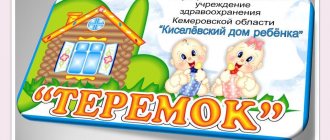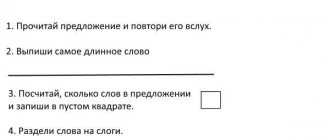The job description of a speech therapist is a legal document that defines the main parameters of the specialist’s activities. It sets out his labor functions, the range of tasks for which he is responsible, the opportunities provided to him by the employer, and other similar points. Correctly drawn up instructions help to formalize labor relations, relieving the parties of the need for frequent individual consultations on labor issues.
- Form and sample
- Free download
- Online viewing
- Expert tested
FILES
Sample job description for a speech therapist
General section
- A candidate for the position of speech therapist must meet the following criteria:
- higher education in a pedagogical profile in the field of “Speech Therapy” or “Defectology”;
- successfully completed medical examination;
- work experience in the profile of at least one year.
- The speech therapist reports to the head of the institution.
- A speech therapist is accepted into his position, as well as dismissed from it, by order of the head of the institution.
- In the absence of a speech therapist (vacation, treatment, etc.), his functions are transferred for a certain period of time to another specialist determined by the head of the institution.
- A specialist in this position must understand:
- specialized legislative and regulatory framework;
- industry rules, including ethics;
- standards of interaction with visitors, including in terms of receiving and processing information from patients with speech impairments;
- analysis of data on visitors based on relevant medical documents;
- methods of diagnosis when working with specialized visitors;
- methods for drawing up individual recommendations for correcting identified defects;
- age and gender characteristics of visitors that influence their speech;
- methods of interaction in work on visitors with other specialists;
- standards for working with relevant documentation;
- theoretical and practical standards of defectology;
- methods of prevention and correction of speech defects;
- technical and fire safety standards;
- sanitary and hygienic standards.
- The speech therapist is guided by:
- the current legal framework;
- industry regulations;
- documents of the institution;
- the contents of this instruction.
Functions
The speech therapist is responsible for the following range of tasks:
- Consulting visitors, as well as their legal representatives, within their competence.
- Filling out the necessary profile documentation.
- Collaborate with other professionals to assist visitors.
- Receiving and processing information on patients.
- Establishing and maintaining contacts with patients who have speech problems.
- Conducting primary and secondary examinations of visitors, as well as referring them to other specialists for in-depth research.
- Making a diagnosis for visitors, justifying it and documenting it.
- Identification of factors influencing defects in patients.
- Selection and justification of rehabilitation measures, as well as their possible adjustment if necessary.
- Compliance with labor protection, sanitation, and fire safety standards in your premises.
- High-quality use of protective clothing and tools provided by the institution.
Responsibility
A speech therapist may be responsible in the following situations:
- For material damage received by the employer through his fault - within the limits given in the relevant legislation.
- For improper performance of one’s duties - within the limits specified in the relevant articles of labor legislation.
- For violations of current regulations and laws committed during the performance of core functions - within the limits set forth in the relevant articles of current legislation.
Rights
The speech therapist is endowed with the following set of rights:
- Propose measures on possible ways to improve labor procedures within the boundaries of their responsibility.
- Participate in meetings of the institution’s labor staff.
- Require management to create and maintain conditions necessary for the quality performance of professional duties.
- Get acquainted with draft documents affecting the scope of professional activity.
- Receive from other employees of the institution data required in their work activities.
Working conditions
Features of the work activity of a speech therapist are as follows:
- A specialist can be involved in work on holidays and weekends, receiving appropriate additional payments from the employer.
- A specialist must undergo specialized advanced training courses (at least once every five years).
- A specialist can go to congresses and conferences in his field of study in the manner specified in the relevant documents of the institution.
- During the period of work, the specialist is provided with special clothing and the necessary tools at the expense of the institution.
- The specialist undergoes regular medical examinations in the manner prescribed in the relevant documents of the institution.
- The specialist undergoes regular re-certification in the manner specified in the institution’s documents.
MUNICIPAL BUDGETARY PRESCHOOL EDUCATIONAL INSTITUTION
"Kindergarten No. 69"
Likhacheva Street, 18, Miass, Chelyabinsk Region, 456300 Tel..
OKPO 51494699, OGRN 1027400876040, INN/KPP 7415031785/741501001
Accepted I APPROVED
Pedagogical Council of MBDOU No. 69 Head of MBDOU No. 69
Protocol from “___”________2017 _________________ M.L. Babosina
No._____________ “___” _______________ 2021
JOB DESCRIPTION
TEACHER SPEECH THERAPIST
Introduced with "__" ____________ 2021 by order No._____ dated_________________
GENERAL PROVISIONS
1.1. This job description has been developed on the basis of the qualification characteristics of positions approved by the order of the Ministry of Health and Social Development of the Russian Federation (section “Qualification characteristics of positions for education workers”) dated August 26, 2010 No. 761 n., letters of the Ministry of Education of the Russian Federation dated January 22, 1998 No. 20 - 58 – 07 in/20 – 4 “About speech therapists and educational psychologists in educational institutions”
1.2. A speech therapist teacher is appointed and dismissed by order of the head of the Municipal Budgetary Preschool Educational Institution “Kindergarten No. 69” (hereinafter referred to as MBDOU).
1.3. A speech therapist teacher belongs to the category of specialists.
1.4. A person with a higher professional (defectological) education is appointed to the position of speech therapist teacher.
1.5. The speech therapist teacher reports directly to the head of the MBDOU.
1.6. Its activities are guided by:
— The Constitution of the Russian Federation and the Federal Law “On Education in the Russian Federation”, the current legislation of the Russian Federation and municipal legal acts of the Miass urban district.
— San Pin 2.4.1.3049 – 13 “Sanitary and epidemiological requirements for the design, content and organization of the operating mode of preschool educational organizations”;
— Federal State Educational Standard for Preschool Education;
— Order of the Ministry of Education and Science of the Russian Federation dated March 24, 2010 No. 209 “On the procedure for certification of teaching staff of state and municipal educational institutions”
— Charter and local acts of MBDOU;
— The procedure for organizing and implementing educational activities according to basic general education programs - educational programs of preschool education;
— normative documents and methodological recommendations on issues of professional activity;
— program and methodological literature on working with students, the main general education program of preschool education;
— Internal labor regulations;
— Rules and regulations of labor protection and fire safety;
- orders and instructions of the manager;
— this job description;
- employment agreement (contract).
1.7. A speech therapist teacher should know:
- priority directions for the development of the educational system of the Russian Federation;
- laws and other regulatory legal acts regulating educational activities;
- Convention on the Rights of the Child;
- developmental and special pedagogy and psychology; anatomical, physiological and clinical foundations of defectology; methods and techniques for preventing and correcting deviations in the development of students and pupils;
- normative and methodological documents on issues of professional and practical activity; program and methodological literature on working with students and pupils with developmental disabilities; the latest achievements of defectological and pedagogical sciences;
- labor protection and fire safety regulations;
- theory and methods of managing educational systems;
- modern pedagogical technologies for productive, differentiated, developmental education, implementation of a competency-based approach;
- methods of persuasion, argumentation of one’s position, establishing contacts with students, pupils of different ages, their parents (persons replacing them), work colleagues; technologies for diagnosing the causes of conflict situations, their prevention and resolution;
- fundamentals of ecology, economics, sociology;
- labor legislation;
- basics of working with text editors, spreadsheets, email and browsers, multimedia equipment;
- internal labor regulations of an educational institution;
- labor protection and fire safety rules.
1.8. A speech therapist teacher must have professional pedagogical qualifications; the qualification category is assigned based on the results of certification.
1.9. Conditions of remuneration: remuneration includes the amount of salary (official salary), compensation and incentive payments in accordance with the Regulations on remuneration of employees of the MBDOU, as well as taking into account the opinion of the representative body of employees, within the budget limits of budget obligations for remuneration of MBDOU , including all sources of funding.
2. QUALIFICATION REQUIREMENTS
2.1. A speech therapist teacher must have a higher professional education in the field of defectology without presenting requirements for work experience.
2.2. A speech therapist teacher must have the following basic competencies:
— identifying the special educational needs of children with disabilities and planning corrective measures;
— in the use of special methods of training and education, special teaching aids and didactic materials, technical means of teaching for collective and individual use;
— in interaction with parents (legal representatives) of pupils and employees of the MBDOU;
— in mastering information and communication technologies and the ability to use them in carrying out corrective measures.
2.3. Based on the order of the Ministry of Education and Science of the Russian Federation dated March 24, 2010 No. 209 “On the procedure for certification of teaching staff of state and municipal educational institutions,” a teaching worker can apply to the certification commission with an application to conduct certification or establish compliance of the qualification level with the requirements for the first qualification category, having work experience of at least 2 years.
The first qualification category can be established for teaching staff who:
- master modern educational technologies and methods and effectively apply them in practical professional activities;
- have stable results in students’ mastery of educational programs and indicators of the dynamics of their achievements above average in the constituent entity of the Russian Federation;
- make a personal contribution to improving the quality of education based on improving teaching and educational methods.
A teaching worker may apply to the certification commission for certification or to establish compliance of the level of qualifications with the requirements for the highest qualification category, having worked no earlier than 2 years after the establishment of the first qualification category.
The highest qualification category can be established for teaching staff who:
- have the established first qualification category;
- master modern educational technologies and methods and effectively apply them in practical professional activities;
- have stable results in students mastering educational programs and indicators of the dynamics of their achievements above average in the constituent entity of the Russian Federation, incl. taking into account the results of students’ participation in all-Russian and international olympiads, competitions, competitions;
- make a personal contribution to improving the quality of education based on improving teaching and educational methods; innovation activities, in the development of new educational technologies and actively disseminate their own experience in the field of improving the quality of education and upbringing at different levels.
3. FUNCTIONS
A speech therapist working at a speech center is assigned the following functions:
3.1. Participation in the educational process aimed at preventing, compensating and correcting deviations in the development of children’s oral speech, and timely prevention of violations of written speech.
3.2. Promoting the protection of individual rights in accordance with the UN Convention on the Rights of the Child.
3.3. Conducting an in-depth speech therapy examination of MBDOU pupils aged 3 to 7 years to determine the level of speech development, specific speech disorders of various origins and the structure of the defect.
3.4. Practical use of proven correctional techniques in children’s work to correct developmental abnormalities and restore impaired functions.
3.5. Providing advisory and methodological assistance to parents (persons replacing them), teachers and specialists for the purpose of preventing speech disorders in preschool children, on the issues of differentiated diagnosis of speech disorders in children and the use of special methods and techniques for providing assistance to children with developmental disabilities.
3.6. Explaining the basics of speech therapy knowledge among teachers and parents.
4. JOB RESPONSIBILITIES
The speech therapist teacher is obliged to:
4.1. Realize:
— individually oriented correctional assistance to children with speech disorders, taking into account the characteristics of psychophysical development and their individual capabilities;
— work aimed at preventing and maximizing correction of specific speech disorders and other deviations in the development of mental processes (memory, attention, thinking, etc.) in students;
— development of action plans aimed at preventing speech disorders in pupils (consultations, seminars for educators and other MBDOU specialists, parents on working with the sound culture of speech);
— examination of pupils, determines the structure and severity of their developmental disorder.
— staffing subgroups for classes, taking into account the psychophysical state of students and pupils;
— pedagogically sound choice of forms, techniques, means, methods of teaching and correction within the framework of new requirements in education.
4.2. Conduct group and individual (4-5 children) correctional and developmental classes with children to correct speech disorders and neuropsychic developmental disorders, restore impaired functions.
4.3. Work closely with educators, other teaching staff and parents (legal representatives) of pupils, attend classes, interact with group teachers to consolidate the positive results of correction and form coherent narrative speech in preschoolers, dynamic observation of children who have completed a course of correctional classes, through periodic examinations of the child.
4.4. Identify the causes and degree of deviations in the speech, intellectual and neuropsychic development of children.
4.5. Refer pupils (in cases of special need) for consultation to psychological, medical and medical-pedagogical centers.
4.6. Draw up conclusions based on the results of a speech therapy examination and bring it to the attention of parents and teachers to the extent possible in order to orient them in the problems of development of a preschooler.
4.7. Develop and use:
— cycles of classes aimed at eliminating speech disorders in preschoolers, disorders of the pronunciation aspect of speech, defects in phonemic processes and lexico-grammatical disorders that are subject to correction;
— recommendations for teachers, specialists and parents on working with children with problems in speech development;
4.8. Make a personal contribution to improving the quality of education based on improving teaching and educational methods.
4.9. Own modern educational technologies and methods of correctional pedagogy and effectively apply them in professional activities, ensuring the level of training of students that meets the requirements of the federal state educational standard.
4.10. Consult all participants in the educational process in order to prevent speech disorders and select technologies for speech therapy assistance for children.
4.11. Have stable results in students’ mastery of correctional programs and indicators of the dynamics of their achievements.
4.12. Contribute to the formation of a common personal culture and socialization.
4.13. Maintain the necessary documentation in accordance with the nomenclature of cases approved by the order under the MBDOU, in the prescribed form and provide the necessary data in a timely manner.
- plans for educational work for the month;
- pupils' attendance records;
- workbook for teacher councils and weekly planning meetings;
- parent consultation log;
- self-education notebook;
- monitoring results notebook;
- Consulting materials for teachers and parents.
4.14. Participate:
— in the monitoring procedure:
- at the beginning of the school year - to determine the area of educational needs of each student;
- at the end of the year - in identifying the level of achievement by each child of intermediate and final indicators of mastering the program, the dynamics of the formation of integrative qualities;
- in the work of pedagogical, methodological councils, other forms of methodological work, in the work of the medical-pedagogical council, in the work of holding parent meetings, recreational, educational and other events provided for by the educational program, in organizing and conducting methodological and advisory assistance to parents (persons replacing them);
- in the work on holding parent meetings and other events provided for in the annual plan;
— in the work of pedagogical, methodological councils, and other forms of methodological work;
— in disseminating our own experience in the field of improving the quality of education;
— in designing the developmental environment of the speech center and groups of their students;
— integration interaction with educators and other specialists.
4.15. Complete additional professional educational programs for professional retraining or advanced training at least every 3 years;
4.16. Provides:
— life safety and health of pupils and compliance with SanPiN during correctional and developmental activities;
— level of training of students that meets new educational requirements;
— compliance with labor protection and fire safety rules.
4.17. As the pupils' speech deficiencies are corrected, the speech therapist takes the children out and replaces them with others.
5. PERFORMANCE EVALUATION CRITERIA.
- positive dynamics of development of pupils,
- participation in methodological work,
- absence of child injuries,
- parents' satisfaction with the process and result of the teacher's activities.
6. RIGHTS
6.1. A speech therapist teacher has the rights provided for by the Labor Code of the Russian Federation, the Federal Law “On Education in the Russian Federation”, “Model Regulations on a Preschool Educational Organization”, the Charter and other local regulations of the MBDOU.
6.2. Improve your qualifications (at least once every 3 years)
6.3. A speech therapist teacher, within the limits of his competence, has the right:
— take part in the development of the educational program, annual plan and development plan for MBDOU, in the creation of relevant regulatory documents;
— establish business contacts with third-party organizations within their competence;
— make proposals for improving the educational process;
- freely choose and use teaching and educational methods, teaching aids and materials that correspond to the program being implemented;
— present your work experience at pedagogical meetings, methodological associations, final reporting events and in specialized publications;
— get acquainted with the draft decisions of the head of the MBDOU relating to his activities,
— demand the creation of conditions necessary for the performance of professional duties;
- participate in the work of self-government bodies.
6.4. Receive information and documents from heads of structural divisions, specialists on issues within his competence.
6.5. To protect professional honor and dignity.
6.6. For social guarantees and benefits established by the legislation of the Russian Federation.
7. RESPONSIBILITY
7.1. The speech therapist teacher bears personal responsibility:
— for the life and health of pupils during correctional and developmental classes;
— for violation of the rights and freedoms of students determined by the legislation of the Russian Federation, the Charter and local acts of the MBDOU;
- for the implementation of educational programs not in full, the quality of the educational programs being implemented, for the compliance of the forms, methods and means used in organizing the educational process with the age-related psychophysical characteristics, inclinations, abilities, interests and needs of children;
- for improper performance or failure to fulfill their official duties provided for in these instructions - within the limits determined by the labor legislation of the Russian Federation;
- for offenses committed in the course of carrying out their activities - within the limits determined by the administrative, criminal and civil legislation of the Russian Federation;
- for causing material damage - within the limits determined by the labor and civil legislation of the Russian Federation;
- for timely completion of medical examination.
7.2. For using, including one-time, methods of education associated with physical and (or) mental violence against the child’s personality, the teacher may be dismissed in accordance with labor legislation and the Law of the Russian Federation “On Education” (Article 336 of the Labor Code of the Russian Federation).
7.3. For violation of fire safety rules, labor protection, sanitary and hygienic rules, the teacher is brought to administrative responsibility in the manner and in cases provided for by the administrative legislation of the Russian Federation, for gross violation of labor duties, the Charter and other local acts of the MBDOU is subject to disciplinary punishment in accordance with Article 192 of the Labor Code RF.
7.4. The speech therapist follows the rules for conducting confidential office work:
- does not disclose information constituting confidential information that is entrusted to become known to him;
— fulfills the requirements of instructions and regulations to ensure the safety of confidential information;
- in the event of an attempt by unauthorized persons to obtain confidential information, immediately inform the head of the preschool educational institution;
- does not use knowledge of confidential information for purposes not related to the use of official duties;
- in case of dismissal, all media of confidential information (documents, publications, manuscripts, drafts, disks, floppy disks, removable media, printouts, film and photographic materials) that were at disposal in connection with the performance of official duties are transferred to the head of the preschool educational institution;
- immediately informs the head of the preschool educational institution about the loss or shortage of confidential information carriers and other facts that may lead to the disclosure of confidential information, as well as the reasons and conditions for a possible leak of information.
8. RELATIONSHIPS AND CONNECTIONS BY POSITION
8.1. Speech therapist teacher: works in a normal working day according to a schedule drawn up on the basis of a 20-hour work week, in the amount of workload assigned to him, and approved by the head of the MBDOU.
8.2. Independently plans his work for a year, half a year and month. Plans are coordinated with the head of the psychological and pedagogical service and approved by the head of the MBDOU.
8.3. Submits a written report to the head of the service on its activities for the six months and at the end of the year.
8.4. Receives information of a regulatory, organizational and methodological nature from the head of the MBDOU, senior teacher, and familiarizes himself with the relevant documents against signature.
8.5. Systematically exchanges information on issues within its competence with the teaching staff.
8.6. Informs the senior teacher and head of the MBDOU about difficulties encountered in working with parents and teachers.
8.7. Communicates information received directly from meetings and seminars to managers.
8.8. Involved by the administration of the MBDOU in pedagogical, methodological or organizational work within the established working hours and in accordance with the Labor Code of the Russian Federation. Can replace a temporarily absent teacher if there is a production need in agreement with the head of the MBDOU;
8.9. Reports to the Council of Teachers.
8.10. Must inform the manager about absence from work due to sick leave or return to work after illness.
8.11. Every year the office is prepared for the new academic year. Provides assistance in carrying out repair work during the summer period when necessary.
8.12. Submits, in addition to the manager, to the senior teacher and senior nurse.
I have read the instructions:
| date | Signature | Full name |
Key points in drawing up instructions
The domestic regulatory framework does not specify the parameters for creating instructions. Therefore, when writing it, employers focus on adapting standard instructions for their needs, in accordance with the principles of office work. These samples are available in two versions: standard and extended.
Mandatory parts of the standard instructions:
- Common parameters.
- Professional features.
- Potential Liability.
- Job opportunities.
This type of instruction is used for most workers, especially in small and medium-sized organizations. In large institutions, as well as when writing instructions for management-level employees, an extended version is used. It adds to the standard sections:
- Features of work activity.
- Rules for performance assessment (KPI).
- Parameters of job interactions.
- Instruction conversion order.
The expanded format allows you to formalize a larger number of labor parameters. The price for this is a reduction in the flexibility of labor relations.
Basic provisions
The introductory part lists the requirements for the candidate’s qualifications, the parameters of his personnel interactions (the procedure for hiring, dismissal, replacement), and the provisions that he should focus on in his work.
The main role is played by the required skills, which are required to ensure that the functions given in the next section are performed at a high level. And criteria based on experience and education make it possible to screen out candidates with an insufficient level of training.
Attention! Job descriptions can be drawn up either in a standard manner or individually. In the first case, the instructions are suitable for any specialist in a certain position, and in the second, they are written for a specific highly qualified worker.
Functions
This part describes the responsibilities assigned to the specialist. There are several conditional groups of these responsibilities:
- The main ones are typical for the profession of any employer.
- Auxiliary - complement the main functions; their scope and complexity depend on the policies and characteristics of the employing organization.
- Basic - included in instructions for any profession: compliance with fire and technical safety standards, labor discipline, etc.
If an employer provides an employee with any valuables (tools, clothes for work, etc.), then the need to treat them with care is specifically mentioned.
Responsibility
This part is reserved for listing possible violations and penalties. Since responsibility is built on the basis of current legislation, the scope and diversity of which take it beyond the scope of the instructions, the section is compiled in a truncated form, with a small amount of specifics.
Rights
The section describes rights additional to those already granted to the employee in Art. 21 TK. As a general rule, the greater the responsibility of an employee, the greater the opportunities he has.
Working conditions
This section is added if the employer wants to identify some specific features in work activity. Traditionally, this includes additional benefits: training at the expense of the employer, free branded clothing, etc. If the work involves a non-standard work schedule, then this point is stated in this section.
Before being put into effect, the instruction must go through a number of approval stages:
- The initially drafted version is shown to a lawyer specializing in labor law and the head of the personnel department.
- The version with their edits is agreed upon with relevant specialists in the area for which the instructions are being drawn up.
- The final version is printed on company letterhead, including official attributes (date of compilation, details of the organization, etc.), and sent for signature to those persons who approved its content.
- At the final stage, signatures are placed by the head of the employing organization and the employee for whom the instructions were written.
Attention! The employee has the right to request from the HR department his copy of the instruction, which can be issued in paper or electronic format. In the second option, personal information is first deleted from it.






